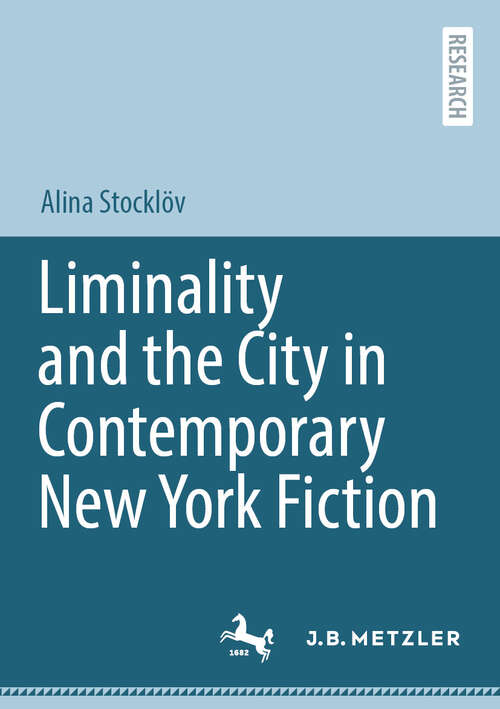Liminality and the City in Contemporary New York Fiction
By:
Sign Up Now!
Already a Member? Log In
You must be logged into Bookshare to access this title.
Learn about membership options,
or view our freely available titles.
- Synopsis
- This book explores liminal spaces and states in New York City literature after 2000. The concept of &“liminality&” refers to a transitional state where people, places, or ideas exist between two clearly defined conditions. In this ambiguous &“in-between state&”, uncertainty, indeterminacy, and change prevail, temporarily suspending traditional norms and allowing for complex identity formation and social reordering. Liminality offers a multifaceted, interdisciplinary approach to urban literature, as the city itself is defined by both temporal and spatial thresholds. The study examines the interplay between liminality, the city, and postmodernism, as well as the literary representation and narrative depiction of these relations. Drawing on key anthropological works by Arnold van Gennep and Victor Turner, and engaging with the writings of Jacques Derrida, Henri Lefebvre, Carl Gustav Jung, Michel Foucault, Walter Benjamin, and Homi K. Bhabha, this study investigates the development of the concept of liminality in the humanities. It then proceeds with comparative literary analysis of selected texts by canonical authors such as Don DeLillo, Jonathan Safran Foer, Joseph O'Neill, and Teju Cole, focusing on urban mobility, liminal spaces, and New York as a place of memory and trauma in the post-9/11 literary landscape.
- Copyright:
- 2025
Book Details
- Book Quality:
- Publisher Quality
- ISBN-13:
- 9783662712115
- Related ISBNs:
- 9783662712108
- Publisher:
- Springer Berlin Heidelberg
- Date of Addition:
- 04/16/25
- Copyrighted By:
- The Editor
- Adult content:
- No
- Language:
- English
- Has Image Descriptions:
- No
- Categories:
- Literature and Fiction, Language Arts
- Submitted By:
- Bookshare Staff
- Usage Restrictions:
- This is a copyrighted book.
